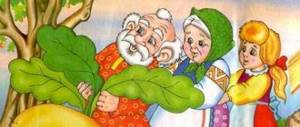Lesson summary “Life and work of A.S. Pushkin"
Teacher:
Write down the 1st period “Childhood of the Poet” (1799-1811) (message on the topic)
Alexander Sergeevich Pushkin was born in Moscow on May 26, 1799, the poet’s father, retired major Sergei Lvovich Pushkin, belongs to an old but impoverished family. Mother, Nadezhda Osipovna, was the granddaughter of Ibrahim Hannibal. Pushkin grew up thoughtful and absent-minded, which caused bewilderment among his parents. Subsequently, however, everything changed: Pushkin became a lively, playful child, striking his parents with his “fiery disposition” and extraordinary memory.
According to some evidence, in early childhood the poet almost did not speak Russian. His first teachers of the Russian language were his grandmother Marya Alekseevna, who had an excellent command of Russian speech; Arina Rodionovna, storyteller and singer. And at the age of 12, childhood ended for him.
Teacher's story
Teacher:
Write down 2 - the Lyceum period (1811 Alexander was 12 years old when his parents decided to send their son to the Lyceum.
In the summer of 1811, accompanied by his uncle, Pushkin went to St. Petersburg. He left Moscow for a long time.
Childhood is over.
Do you remember when
The Lyceum arose
How the king opened it for us
Tsaritsyn's palace...
Pushkin subsequently wrote about this unique establishment, opened in Tsarskoye Selo on October 19, 1811.
The closest friends of Pushkin the lyceum student were:
Ivan Pushchin is a fair, brave, calmly cheerful young man.
Wilhelm Kuchelbecker is enthusiastic, ridiculous and touching.
Anton Delvig is good-natured, slow-moving, and a dreamer.
At the lyceum, A.S. Pushkin really loved the literature lesson (Pushkin once tells that Galich’s lecture ended a little earlier
Let's move on to the next periods of his life. Write down "Petersburg" (1817-1820) and "Southern Exile" (1820-1824)
On a bright June day in 1817, the young poet hurries to St. Petersburg.
The poet became close to the leading people of his time, entered the circle of freedom-loving youth, and read his political poems.
In 1820, Pushkin completed the poem “Ruslan and Lyudmila”, which he began at the Lyceum.
During these years, the poet created many political, freedom-loving poems: “Liberty”, “Village”, “To Chaadaev”. (write it down in your notebooks)
The young poet, not knowing caution and fear, writing and distributing his freedom-loving poems, could not go unpunished.
Alexander I wanted to exile Pushkin to Siberia or Solovki.
Pushkin's friends - Karamzin, Zhukovsky are seeking a commutation of the sentence.
Pushkin is sent to serve in the south of Russia.
During this period, magnificent examples of romantic and political lyrics were created:
“The luminary of the day has gone out”, poems “Prisoner of the Caucasus”, “Bakhchisarai Fountain”, “Robber Brothers”, “Song of the Prophetic Oleg”. Alexander Sergeevich began writing the novel “Eugene Onegin”.
Teacher: The poet’s talent is fully revealed over the years spent on the Mikhailovsky estate.
Student performance
(presentation - student research work) Write down "Mikhailovskoe" (1824-1826)
Pushkin submitted his resignation from the civil service, and he was announced his dismissal and exiled to the Pskov province, to the estate of his mother Mikhailovskoye, under the supervision of local authorities.
Greetings, deserted corner,
A haven of peace, work and inspiration,
Where the invisible stream of my days flows,
In the bosom of happiness and oblivion.
It was here, in rural solitude, that Pushkin realized himself as a professional writer, for whom literature is the most serious matter in life.
In two years the following were written: “Boris Godunov”, “Count Nulin”, “I remember a wonderful moment...”, 4 chapters of “Eugene Onegin”. There are about a hundred works of art in total.
Teacher:
Write down After Exile (1826-1830) and Boldino Autumn
On September 8, 1826, Pushkin entered Moscow. He returned to his homeland after many years of exile and wandering. Pushkin was free, among friends, he was at the height of his fame. These years are the heyday of Pushkin's creativity.
Many of his lyrical masterpieces were created - philosophical reflections on life and death, on inspiration, on the purpose of the poet, sublime and passionate love confessions: “I loved you...”, “On the hills of Georgia lies the darkness of the night...”, “Arion”, “Poet ", "Anchar" and others.
Having received consent to marry N. Goncharova, in the summer of 1830 Alexander Sergeevich went to Boldino to put his economic affairs in order.
Here Pushkin completed the novel “Eugene Onegin”, “Belkin’s Tales”, “Little Tragedies”, “The Tale of the Priest and His Worker Balda”, 30 poems.
Teacher:
Write down "In St. Petersburg" (1831-1833)
What works were written during this period, your drawings will tell you about it ("The Captain's Daughter", "Dubrovsky", "The Bronze Horseman", "The Queen of Spades")
Teacher:
Record "Last Years of Life" (1834 - 1837)
The last years of Pushkin's life - years of hard work and lofty plans, were marked by the hostility of the society around him, literary loneliness, and material difficulties.
Poem “Once again I visited...”
Magazine “Contemporary” (1836)
“I erected a monument to myself, not made by hands...”
On the morning of January 27, 1837, a duel took place. The bleeding Pushkin was brought home.
The wound turned out to be fatal. Relatives and friends gathered at Pushkin’s apartment.
On January 29, 1837, at 2:45 p.m., Pushkin passed away.
Speeches by students with messages for each period:
Message on the topic “Childhood”
Alexander Sergeevich Pushkin was born in Moscow on May 26, 1799. The poet’s father, retired major Sergei Lvovich Pushkin, belonged to an old but impoverished family. Mother, Nadezhda Osipovna, was the granddaughter of Ibrahim Hannibal, a native of Northern Abyssinia, named Abram Petrovich in Russia.
Pushkin grew up thoughtful and absent-minded, which caused bewilderment among his parents. Meanwhile, these features testified to the boy’s early inner concentration, to his complete immersion in his own special, still childish, but already poetic world.
Subsequently, however, everything changed: Pushkin became a lively, playful child, striking his parents with his “ardent disposition, extraordinary memory and, especially, an observant mind beyond his years.”
According to some evidence, in early childhood the poet almost did not speak Russian. His first teachers of the Russian language were his grandmother Marya Alekseevna, who had an excellent command of Russian speech; nanny Arina Rodionovna, storyteller and singer; Uncle Nikita Kozlov, who walked with Pushkin throughout his entire life. Thanks to them, and communication with peasant children, Pushkin learned Russian literacy and acquired the spirit of his native speech. “The legends of deep antiquity,” told by my grandmother and nanny, coexisted with the reading of foreign and domestic literature.
Message on the topic “Lyceum”
In 1811, Pushkin entered the newly opened Tsarskoye Selo Lyceum, where his uncle Vasily Lvovich brought him.
The Lyceum was founded at a dangerous time for Russia: a huge French army stood at the western borders of the country. Soon the Patriotic War of 1812 began. Troops marched through Tsarskoye Selo. The lyceum students saw them off.
During free hours, students and teachers hurried to the Newspaper Room to find out the latest news about the enemy’s movements. Patriotic inspiration brought the lyceum students closer together and inspired their friendship. Pushkin wanted to take a direct part in the diverse and vibrant social and literary life. Therefore, he began to feel burdened by being in the lyceum, a closed educational institution. Complaints about forced slavery increasingly emerge in his poems.
This sadness was brightened up to a certain extent by the friendship of the lyceum students. She was nourished by patriotic feelings, as well as games, amusements and general spiritual interests. Pushkin was fond of wrestling, fencing, played rounders, ball and was very angry when he lost. He, however, easily forgot trivial insults, but for a long time remembered serious ones inflicted on him as a person and humiliating his personal dignity. Pushkin was distinguished at the Lyceum by his cheerfulness and mockery. He loved to make fun of the lyceum students, but his jokes never affected the honor and dignity of his comrades. Here, for example, are the lines he dedicated to Delvig, to whom he felt affection:
Give me your hand, Delvig! Why are you sleeping? Wake up, sleepy sloth! You are not sitting under the pulpit, lulled by Latin.
Such jokes did not offend or cause harm - Delvig’s laziness and drowsiness were legendary.
Lyceum students were especially courageous and united in disputes and poetry competitions. It was not for nothing that Pushkin later noted this feature of the “beautiful union” - “it grew together under the canopy of the muses.” Teachers encouraged literary creativity, and soon many poets were discovered in the lyceum. Poems were written by Kuchelbecker, Delvig, Illichevsky, Korsakov and Yakovlev, but everyone recognized Pushkin’s primacy. And, of course, it is no coincidence that it was he who was asked to write a poem and read it at the exam on January 8, 1815 in the presence of noble nobles.
Lyceum students knew that Derzhavin himself was the first poet of the 18th century. – will be among the distinguished guests. In the ode “Memories of Tsarskoe Selo,” Pushkin glorified the victory of Russian weapons in the Patriotic War of 1812. He was attracted by the patriotic theme of the close union of military feats and poetry. The ode also mentioned Derzhavin, who praised Suvorov’s military leadership talent “with the strings of loud-sounding lyres.”
The lyceum period - the time of apprenticeship and search for an independent path - was remembered by Pushkin for the patriotic upsurge of 1812, and the close lyceum friendship, and the first emotions of the heart, and freedom-loving dreams, and the beginning of his poetic glory.
Message on the topic “Petersburg”
The lyceum years passed, and with them the youth of Pushkin ended. The poet entered a new era of his life. Prominent Russian writers and poets: Karamzin, Zhukovsky, Batyushkov, Vyazemsky predicted poetic glory for Pushkin. Initially, upon leaving the lyceum, the poet went to Mikhailovskoye, but in August 1817 he returned to St. Petersburg and settled with his parents on the outskirts of the capital. Service in the Collegium of Foreign Affairs, where the young collegiate secretary Alexander Pushkin was enrolled, did not burden him.
Pushkin devoted himself enthusiastically to poetry, art, political feasts, and friendly meetings. Pushkin's circle of acquaintances expanded. The poet felt the fullness of life, enjoyed youth, health, and an abundance of mental strength.
Pushkin became close to the most advanced people of his time and joined the circle of free-thinking youth. He willingly read his poems here, knowing that in this society they would understand the fiery impulses of his rebellious heart. Somewhat later, in 1819, Pushkin began to visit N.V.’s house. Vsevolozhsky, his friend, a theater lover, at whose place the members of the Green Lamp circle, closely connected by the secret society “Union of Welfare,” gathered. This included the poet Fyodor Glinka, the future Decembrist Sergei Trubetskoy, Pushkin’s friend, officer Yakov Tolstoy and others. The meetings of the circle were kept secret. They discussed political, economic and social issues.
The love of freedom manifested itself with particular force in the St. Petersburg period in the poem “To Chaadaev” (1818), which was written in the genre of a friendly message, but at the same time filled with deep social content.
Other works of a freedom-loving nature also appeared. Pushkin hated all hypocrisy, hypocrisy, and deliberate religiosity, which flourished at the court of Alexander I. His poems were read aloud, circulated in numerous copies and in oral transmission. Pushkin truly was the poetic voice of the progressive nobles.
Post on "South Link"
A thunderstorm broke out suddenly over Pushkin.
It seemed that nothing could darken either Pushkin’s bright mood or his sparkling gaiety. But then Alexander I reproaches the director of the Lyceum Engelhardt for the fact that the former Tsarskoye Selo student “flooded Russia with outrageous poetry” and orders Governor General Miloradovich to arrest the poet. And in April 1820, Miloradovich invited Pushkin to his place and confidentially informed him about the danger. The poet answered the governor that his papers were burned, but that he could restore the poems from memory, and immediately wrote all the freedom-loving poems, except for one epigram. Miloradovich asked the tsar to forgive the young poet, who captivated him with his nobility. But the king was inexorable. Alexander I hesitated where to exile Pushkin - to Siberia or to the Solovetsky Monastery. Friends made a lot of efforts to alleviate the poet’s plight. Everyone was busy - Karamzin, Zhukovsky, and Chaadaev. Finally, the tsar gave in: Pushkin headed to the southern provinces under the command of General I.N. Inzova. On May 6, 1820, he went to southern exile.
In mid-May 1820, Pushkin arrived in Yekaterinoslav (now Dnepropetrovsk). General Inzov greeted him friendly. After the noisy life in St. Petersburg, Pushkin felt boredom in Ekaterinoslav. In addition, he became seriously ill. At this time, the family of the famous hero of the Patriotic War of 1812, General Raevsky, arrived in Yekaterinoslav. Her path lay on the Caucasian waters. Inzov agreed to release Pushkin for treatment, and the poet, together with the Raevskys, went south.
In the south, Pushkin created several romantic poems - “Prisoner of the Caucasus”, “The Robber Brothers”, “The Fountain of Bakhchisarai”, worked on “The Gypsies”, which he completed at Mikhailovsky, and began writing a novel in verse “Eugene Onegin”.
Arriving in the fall of 1820 from Crimea to Chisinau to his place of service, Pushkin happily plunged into the atmosphere of political, philosophical and literary disputes.
Pushkin was greeted in Chisinau in a friendly manner. He found here his longtime acquaintance from St. Petersburg, General M.F. Orlov, an honored warrior who accepted the capitulation of Paris in 1814.
P.I. made a particularly great impression on Pushkin. Pestel, participant in the Patriotic War of 1812, founder and head of the Southern Society of Decembrists, subsequently executed along with Ryleev and others. In his diary, the poet wrote on April 9, 1821 about the personality of the future leader of the Southern Society: “... an intelligent man in every sense of the word,” “one of the most original minds I know.” At the same time, Pushkin met with the “first Decembrist” V.F. Raevsky, imprisoned even before the uprising on Senate Square, and even managed to warn him about his arrest.
Message on the topic “Mikhailovskoye”
On August 8, 1824, Pushkin arrived in Mikhailovskoye. He saw a neglected estate, an old house where he was to live for an unknown amount of time. Pushkin was forbidden to leave Mikhailovskoye without permission. Here he was completely alone, far from friends, from culture. In a remote northern village, the poet felt uncomfortable and depressed.
He whiled away the long autumn and winter evenings with Arina Rodionovna, who told him fairy tales and sang the melodies of Russian folk songs.
At first, Pushkin's creativity in Mikhailovsky was imbued with deep sadness. But in the spring of 1825 and especially in the summer, Pushkin’s mood changes: he is cheerful, cheerful, mentally calm and focused. Pushkin wrote to his friend Raevsky in the summer of 1825: “I feel that my spiritual powers have reached full development, I can create.”
Message on the topic “After the link”
Pushkin lived out his last days in Mikhailovsky with difficulty. He felt lonely and stuffy in his northern captivity. There he also learned about the defeat of the Decembrist uprising in St. Petersburg. He waited with tension for detailed news about the end of the investigation and the verdict. His acquaintances and friends were on the list of state criminals, they faced severe punishment, and five of them were executed.
Pushkin will not forget them. He will approve of Kuchelbecker, Pushchin. Quick drawings of five hanged men subsequently appeared on the pages of his manuscripts. He will devote many poetic lines to the Decembrists.
The entire summer of 1826 passed in painful and difficult thoughts. And on September 3, a courier suddenly arrived and gave the poet an order to immediately appear in Pskov. The governor sent Pushkin to Moscow, where Nicholas I was crowned king.
On September 8, 1826, Pushkin entered the Tsar’s office in the Chudov Monastery, the conversation lasted quite a long time, about two hours. Little is known about her. But what has come down to us comes down to the conclusion of an oral agreement between Pushkin and the Tsar. Pushkin promised to refrain from publicly criticizing the government, but did not hide from the tsar his sympathy for the Decembrists. Nicholas I allowed the poet to live in both capitals and volunteered to be the sole censor of his works. Pushkin assumed that the tsar's personal censorship would give him quick access to the press. The Tsar, who was ascending the throne, wanted to win over the poet and Russian society after the brutal reprisal of the Decembrists. Society considered Pushkin's return from exile to be the greatest event in the first years of the new tsar's reign, but the hope for a change in Pushkin's political views did not materialize: he did not at all intend to become an official poet. True, he was more careful for some time, but he did not change his views.
Message on the topic “Boldino autumn”
In the spring of 1829, Pushkin received consent to marry N.N. Goncharova. In the summer of 1830, the poet came to Boldino to take possession of the estate. He had to stay in Boldin not for a month, as he had intended, but for three: a cholera epidemic began.
The forced stay in Boldin was marked by an unprecedented creative upsurge. Pushkin completed the novel “Eugene Onegin”, wrote “Belkin’s Stories”, “The History of the Village of Goryukhin”, several small dramatic works called “little tragedies” in one of his letters, the folk-lyrical drama “Rusalka”, the poem “The House in Kolomna” , “The Tale of the Priest and His Worker Balda” and several beautiful lyrical poems.
Magazines write about the decline of the poet's talent, shamelessly slander him and even humiliate his human dignity.
The famous informer and agent of the III department F.V. Bulgarin published a feuilleton in 1830 in which he claimed that Pushkin “in his writings did not discover a single high thought, not a single sublime feeling, not a single useful truth...”. That same year, magazines accused the poet of imitating. Vestnik Evropy called Pushkin “a great man for small things.”
The persecution has begun. Pushkin accepted the challenge. He could not help but respond to the impudent attacks of journalists. He branded Bulgarin as a mediocre scribbler, as a coward and a deserter who fled from the Russian army and served as a police agent for Napoleon. However, the fight was too unequal.
Message on the topic “In St. Petersburg”
In November 1830 Pushkin left Boldino. At the beginning of December he arrived in Moscow, and on February 18, 1831, his wedding took place with Natalya Goncharova. Soon he and his young wife moved to St. Petersburg.
The poet is still full of creative ideas. In 1832 he began writing the novel “Dubrovsky”, and in 1833 - the story “The Queen of Spades”. Then, in 1833, he began work on “The Captain’s Daughter” and collected material for “The History of Pugachev.”
In the works of Pushkin in the 1830s. the historical theme took a special place. To become more familiar with the region where Pugachev's uprising broke out, Pushkin went on a trip to Russia in 1833. He visited Kazan and Orenburg, where memories of Pugachev were still alive. During these same years, Pushkin came closer to realizing his long-conceived idea - to write the history of Peter the Great.
Pushkin saw with alarm that his affairs were getting worse. The family grew, life in St. Petersburg was expensive. The poet's financial situation soon became catastrophic. To all this was added a new serious concern: secular gossip around the name of his wife.
Message on the topic “The last years of life”
1834 was a turning point in Pushkin’s life: the poet wrote in his diary that he was moving to open opposition. On the eve of the New Year, he was granted the rank of chamber cadet. The court title offended Pushkin: usually such titles were given to young men, and Pushkin was no longer young. The poet understood that the king, by bringing him closer to the court, was pursuing certain goals. Rumors once again spread in the world that the poet was currying favor with Nicholas I. The circumstances were tragic: the chamber cadets cast a shadow on Pushkin, and the people's poet, which Pushkin had already recognized himself as, must be pure and immaculate. From that time on, Pushkin spoke contemptuously of Nicholas I, in whom, in his words, “there is a lot of the ensign and little of Peter the Great.” The poet wanted solitude, silence in order to implement great creative ideas. But he is forced to serve to support his family. He was oppressed by his secular surroundings. He could not avoid being in society: his court rank obligated him to attend balls and evenings. In the end, the poet decided to take a desperate step: in the summer of 1834 he submitted his resignation. In response to this, he was banned from working in the archives. The request had to be taken back.
Secular society could not forgive Pushkin for his genius. Pushkin was persecuted with slander and gossip, and this steadily led to a bloody outcome. The poet knew this:
I hear around me the buzz of slander: The decisions of evil stupidity, And the whisper of envy, and light vanity, A cheerful and bloody injection.
He tried to find a way out, again and again making desperate attempts to break out of the tight circle. It was during this period that contemporaries noticed the difficult state of his spirit.
Brilliant works created by Pushkin in the early 30s. , were not understood and appreciated.
Pushkin did not know peace in his family either. The young Frenchman Dantes, adopted by the Dutch envoy Baron Heckern, in the winter of 1836 began to show Natalya Nikolaevna obvious signs of attention. Pushkin was furious: he became gloomy, silent, his appearance was threatening. At the beginning of November, the world inflicted another “irresistible insult” on Pushkin’s heart: the poet received a cynical libel by mail that insulted the honor of him and Natalya Nikolaevna. He sent Dantes a challenge to a duel. Friends managed to prevent a bloody outcome, and Dantes declared his love for Natalya Nikolaevna’s sister Ekaterina and married her.
The world did not side with Pushkin. Everyone blamed the poet and angrily awaited his humiliation. Dantes, although Pushkin's house was closed to him and his wife, did not change his attitude towards Natalya Nikolaevna. On January 25, Pushkin received a new anonymous letter insulting his wife. Pushkin decided to put an end to all this. On the same day, he wrote an angry and harsh letter to Heckern with the clear intention of insulting the envoy and his adopted son. In response, Dantes challenged Pushkin to a duel.
The duel took place on January 27 (February 8, new style) 1837, a few miles from St. Petersburg. Pushkin's second was lyceum comrade Danzas. Dantes shot first. Pushkin fell, but found the strength to fire back a shot that reached the target. According to the memoirs of a contemporary, the poet exclaimed: “Bravo!” However, Dantes was only slightly wounded: the bullet hit the hand with which Dantes was covering his chest.
Bleeding Pushkin was placed in a carriage. On the way home he began to experience severe pain. The wound turned out to be fatal. On January 28, Pushkin said goodbye to his wife, children and close friends. In his dying hour, he asked to forgive his second. His last words were: “Life is over.” On January 29 (February 10), 1837, at 2:45 pm, Pushkin passed away.
“Women, old people, children, students, commoners in sheepskin coats, and others even in rags came to bow to the ashes of their beloved folk poet,” recalled E.N. Karamzina.
The authorities were frightened by popular demonstrations and riots and gave the order to transfer the body for the funeral from St. Isaac's Cathedral to the Konyushennaya Church, and at night they took the coffin to the Svyatogorsk Monastery for burial. The Tsar's order not to arrange “any meeting, no ceremony” was sent to the Pskov governor from the III Department. Pushkin was accompanied on his final journey by his uncle Nikita Kozlov and the poet’s close friend Alexander Ivanovich Turgenev. They were accompanied by a gendarmerie captain.
In the Svyatogorsk Monastery on February 6, 1837 (February 18), Pushkin was buried next to the graves of his grandfather, grandmother and mother.
I V. Lesson summary
(4 min.)
ADVICE FOR DESCENDANTS
Poem:
If life deceives you, don't be sad, don't be angry! On the day of despondency, reconcile yourself: Believe, the day of joy will come. The heart lives in the future; The present is sad. Everything is instant, everything will pass; Whatever happens will be nice.
(A.S. Pushkin)
Homework:
Write an essay “My Pushkin.”






